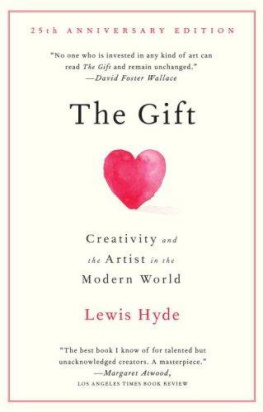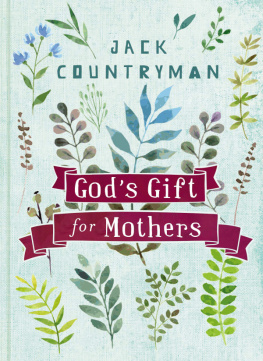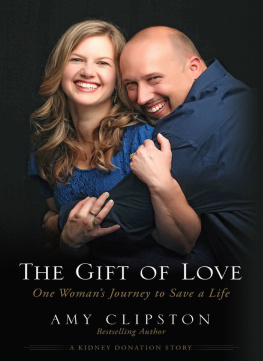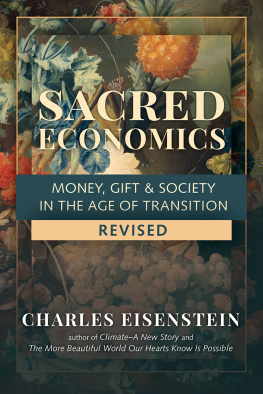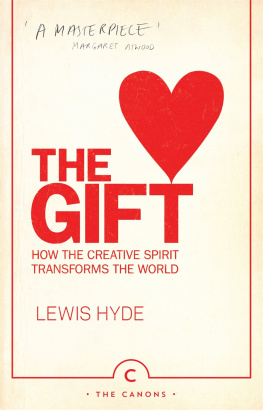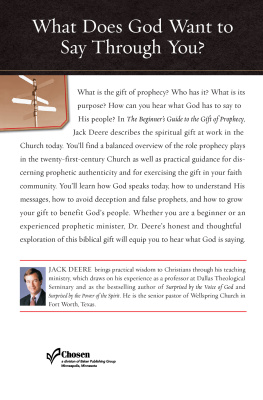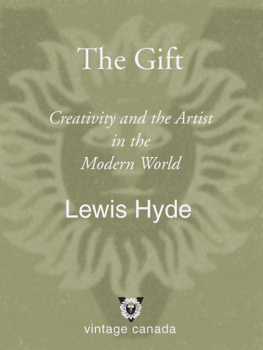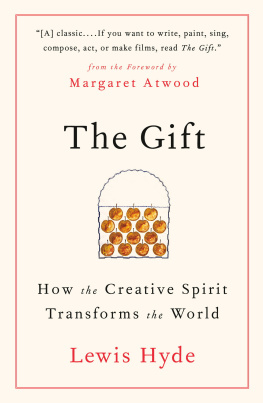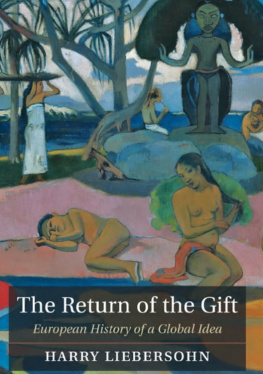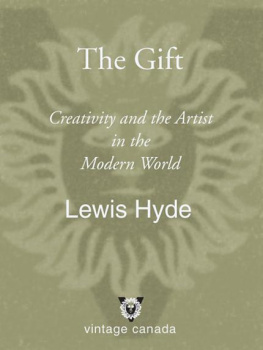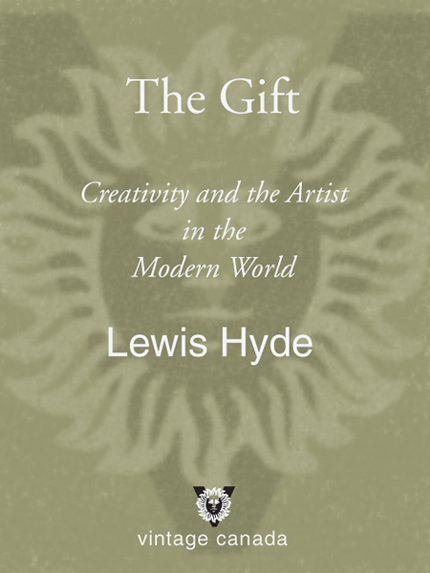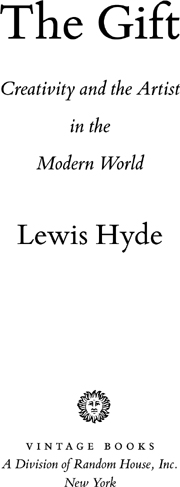I.
II.
Preface
Book salesmen find it handy to have a ten-second description of each title when they go into a bookstore to pitch the product. Any current list of bestsellers will provide a sample of the genre: Extraordinary conclusions about the lineage of Christ. Newspaper columnist learns life lessons from his neurotic dog. How the dead communicate with us. Reporter exposes a ring of vampires out to take over Seattle. Memoir by the bad-boy golf champion.
The Gift has always been hard to summarize in such pithy prose. In a way, that is its point: I began writing the book because it seemed to me that my own experience with the commerce of the creative spirit was nowhere very well articulated. Some explaining was in order and while perhaps it could have been done in less than three hundred pages, it surely couldnt be done in a sentence or even a chapter. This meant, however, that when it first came out the book was in fact an embodiment of the problem it addresses. Books that are hard to explain may, one hopes, be more useful in the long run, but they are also the harder to commodify for a ten-second sell.
The original editor for The Gift was Jonathan Galassi and I remember when we first sat and talked about the project he asked me the question all editors must ask, Who is your audience? I didnt know how to respond. I felt like saying All thinking humans but, made shy by my own grandiosity, I settled for poets. Thats not what most editors want to hear (many prefer dog owners seeking news of the dead). But it was poetry that had brought me to writing in the first place and it was in the poetry world that I could see most clearly the disconnect between art and the common forms of earning a living.
I was very lucky to have happened upon an editor willing to see if the audience might start with poets and move outward, and Ive been luckier still that in fact it has. That may have had as much to do with our historical situation as with the book itself. The commercial ethic that The Gift engages has not diminished in recent decades; quite the opposite. As the afterword to this edition explains more fully, I believe that since the 1989 fall of the Soviet Union, the West has undergone a period of remarkable market triumphalism. Weve witnessed the steady conversion into private property of the art and ideas that earlier generations thought belonged to their cultural commons, and weve seen the commodification of things that a few years ago would have seemed beyond the reach of any market. The loyalty of school children, indigenous knowledge, drinking water, the human genomeits all for sale.
Whatever the link to recent history, the happy fact is that The Gift has managed to find an audience beyond the community of poets. Not too long after it came out, for example, I was asked to give a keynote address at the national convention of the Glass Arts Society; later I did the same for the Society of North American Goldsmiths. This was a nice surprise; it has turned out that artists in the craft communitynot just those working with glass and gold but cabinet-makers, potters, weavers, and other artisanshave found the book useful, perhaps because artists who deal with actual physical objects feel most strongly the tensions The Gift describes. There has turned out to be a receptive ear in spiritual communities as well. I have spoken about the books themes at an Anglican church in New York, an Episcopal cathedral in San Francisco, and a Zen Buddhist monastery in the California mountains. More broadly, Ive had encouraging responses from historians, museum curators, landscape architects, Jungian analysts, agronomists, environmentalists, and more. A translation into Japanese appeared in 1998, an Italian version in 2005. In 2006, Canongate Books in Scotland brought out a new edition for the United Kingdom. Chinese, Russian, Spanish, Portuguese, German, and Turkish versions are now in the works. I am very grateful that the early support I had at Random House and Vintage Books has yielded the fruit we all hoped it might.
And if the salesmen want to pitch the book as Bad-boy critic takes on vampire economy, thats all right with me.
Lewis Hyde
Cambridge, Massachusetts
April 2007
Introduction
The artist appeals to that part
of our being which is a gift and not
an acquisitionand, therefore, more permanently enduring.
JOSEPH CONRAD
At the corner drugstore my neighbors and I can now buy a line of romantic novels written according to a formula developed through market research. An advertising agency polled a group of women readers. What age should the heroine be? (She should be between nineteen and twenty-seven.) Should the man she meets be married or single? (Recently widowed is best.) The hero and heroine are not allowed in bed together until they are married. Each novel is 192 pages long. Even the name of the series and the design of the cover have been tailored to the demands of the market. (The name Silhouette was preferred over Belladonna, Surrender, Tiffany, and Magnolia; gold curlicues were chosen to frame the cover.) Six new titles appear each month and two hundred thousand copies of each title are printed.

